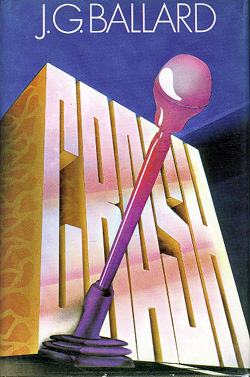
Crash is a novel by English author J. G. Ballard, first published in 1973 with cover designed by Bill Botten. It follows a group of car-crash fetishists who become sexually aroused by staging and participating in car accidents, inspired by the famous crashes of celebrities.
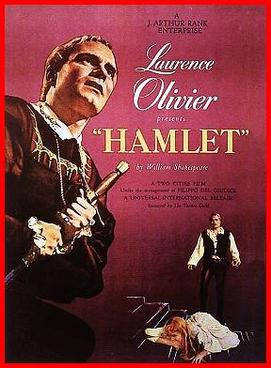
Hamlet is a 1948 British film adaptation of William Shakespeare's play of the same name, adapted and directed by and starring Laurence Olivier. Hamlet was Olivier's second film as director and the second of the three Shakespeare films that he directed. Hamlet was the first British film to win the Academy Award for Best Picture. It is the first sound film of the play in English.

The Newcomers was a late 1960s BBC soap opera which dealt with the subject of a London family, the Coopers, who moved to a housing estate in the fictional country town of Angleton. It was broadcast in bi-weekly half-hour episodes from October 1965 until November 1969. It was initially produced by Verity Lambert.

Jennifer Ann Agutter is an English actress. She began her career as a child actress in 1964, appearing in East of Sudan, Star!, and two adaptations of The Railway Children; the BBC's 1968 television serial and the 1970 film version. In 1971 she also starred in the critically acclaimed film Walkabout and the TV film The Snow Goose, for which she won an Emmy Award for Outstanding Supporting Actress in a Drama.

A Shot in the Dark is a 1964 comedy film directed by Blake Edwards in Panavision. Produced as a standalone sequel to The Pink Panther, it is the second installment in the eponymous film series, with Peter Sellers reprising his role as Inspector Jacques Clouseau of the French Sûreté.

42nd Street is a 1980 stage musical with a book by Michael Stewart and Mark Bramble, lyrics by Al Dubin and Johnny Mercer and music by Harry Warren. The 1980 Broadway production won the Tony Awards for Best Musical and Best Choreography and it became a long-running hit. The show was also produced in London in 1984 and its 2001 Broadway revival won the Tony Award for Best Revival.
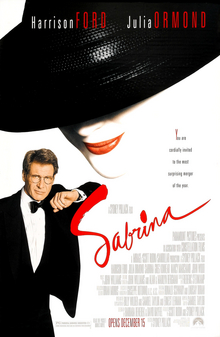
Sabrina is a 1995 American romantic comedy-drama film directed by Sydney Pollack from a screenplay by Barbara Benedek and David Rayfiel. It is a remake of Billy Wilder's 1954 film of the same name, which in turn was based upon the 1953 play Sabrina Fair.

Merrily We Live is a 1938 American comedy film directed by Norman Z. McLeod and written by Eddie Moran and Jack Jevne. It stars Constance Bennett and Brian Aherne and features Ann Dvorak, Bonita Granville, Billie Burke, Tom Brown, Alan Mowbray, Clarence Kolb, and Patsy Kelly. The film was produced by Hal Roach for Hal Roach Studios, and was distributed by Metro-Goldwyn-Mayer.
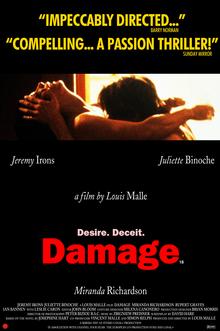
Damage is a 1992 romantic psychological drama film directed and produced by Louis Malle and starring Jeremy Irons, Juliette Binoche, Miranda Richardson, Rupert Graves, and Ian Bannen. Adapted by David Hare from the 1991 novel Damage by Josephine Hart, the film is about a British politician (Irons) who has a sexual relationship with his son's soon-to-be-fiancée and becomes increasingly obsessed with her. Richardson was nominated for an Academy Award for Best Supporting Actress and won a BAFTA Award for Best Actress in a Supporting Role for her performance as the aggrieved wife of the film's main character.
Ed Reardon's Week is a sitcom on BBC Radio 4 recorded semi-naturalistically in the style of a radio drama. It concerns the story of a curmudgeonly middle-aged writer described in the show's publicity material as an "author, pipesmoker, consummate fare-dodger and master of the abusive email". The names of two central characters, Ed Reardon and Jaz Milvane, are references to the characters Edwin Reardon and Jasper Milvain, who appear in George Gissing's 1891 novel New Grub Street, which is set in the hack-literary London of the late 19th century, although Edward was revealed to be his given name in the second episode of the third series and Milvain is referred to as Jaz Milvane.
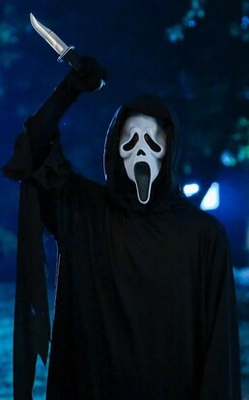
Ghostface is a fictional identity that is adopted by the primary antagonists of the Scream franchise. The figure was originally created by Kevin Williamson, and is primarily mute in person but voiced over the phone by Roger L. Jackson, regardless of who is behind the mask. The disguise has been adopted by various characters in the movies and in the third season of the television series.

The Survivor is a 1981 Australian supernatural horror film directed by David Hemmings and starring Robert Powell, Jenny Agutter, and Joseph Cotten. The film follows an airline pilot who, after surviving a mysterious crash that killed all of his passengers, is contacted by a clairvoyant who claims to be in contact with the victims. It is based on the 1976 novel of the same name by James Herbert. The film marked Cotten's final feature film appearance.

National Lampoon's Movie Madness is a 1982 American comedy film produced by National Lampoon as the second film from the magazine. The film was originally produced under the title National Lampoon Goes to the Movies; completed in 1981, the film was not released until 1982, and was reedited and retitled as Movie Madness.
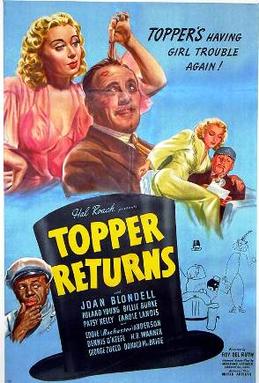
Topper Returns is a 1941 American supernatural comedy thriller film directed by Roy Del Ruth and written by Jonathan Latimer. The third and final installment in the initial series of supernatural comedy films inspired by the novels of Thorne Smith, it succeeds Topper (1937) and Topper Takes a Trip (1938).

When Eight Bells Toll is a 1971 action film directed by Étienne Périer and starring Anthony Hopkins, Jack Hawkins, Robert Morley, and Nathalie Delon. Set in Scotland, it is based upon Scottish author Alistair MacLean's 1965 novel of the same name. Producer Elliott Kastner planned to produce a string of realistic gritty espionage thrillers to rival the James Bond series, but the film's poor box office receipts ended his plans.
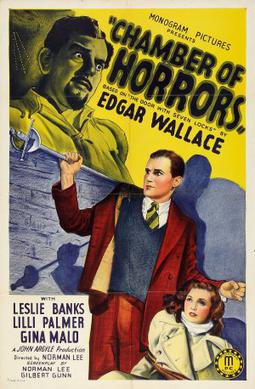
The Door with Seven Locks is a 1940 British horror film, created and released shortly after the British Board of Film Censors lifted its mid-1930s ban on supernatural-themed and horror genre films. It was based on the 1926 novel The Door with Seven Locks by Edgar Wallace. Released in the United States by Monogram Pictures under the title Chamber of Horrors, it was the second Wallace film adaptation to arrive in the United States, the first being The Dark Eyes of London, starring Béla Lugosi, which had been released the year before.

Kipps is a 1941 British comedy-drama film adaptation of H. G. Wells's 1905 novel of the same name. The film was directed by Carol Reed and stars Michael Redgrave as a draper's assistant who inherits a large fortune. The film's costumes were designed by Cecil Beaton.
Stork is a 1971 Australian comedy film directed by Tim Burstall. Stork is based on the play The Coming of Stork by David Williamson. Bruce Spence and Jacki Weaver make their feature film debuts in Stork, being honoured at the 1972 Australian Film Institute Awards, where they shared the acting prize. Stork won the prize for best narrative feature and Tim Burstall won for best direction. Stork was one of the first ocker comedies. Stork was the first commercial success of the Australian cinema revival called the Australian New Wave.

Cross Shot is a 1976 Italian poliziottesco film directed by Stelvio Massi.

High-Rise is a 2015 British dystopian thriller film directed by Ben Wheatley from a screenplay by Amy Jump, based on the 1975 novel of the same name by J. G. Ballard. The film stars Tom Hiddleston, Jeremy Irons, Sienna Miller, Luke Evans, and Elisabeth Moss.


















